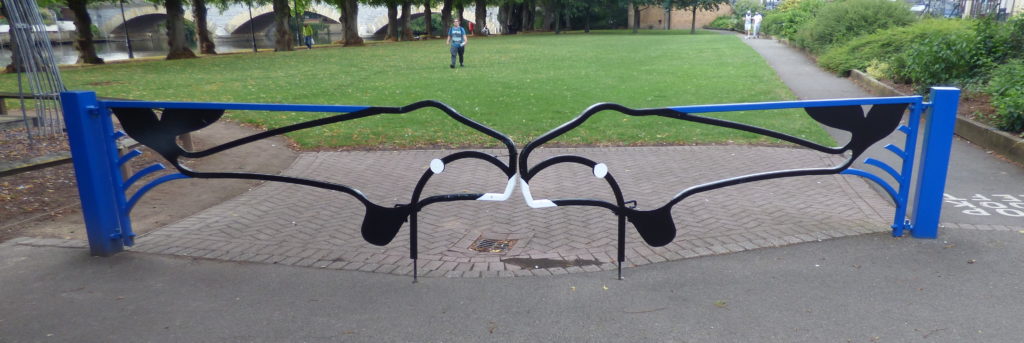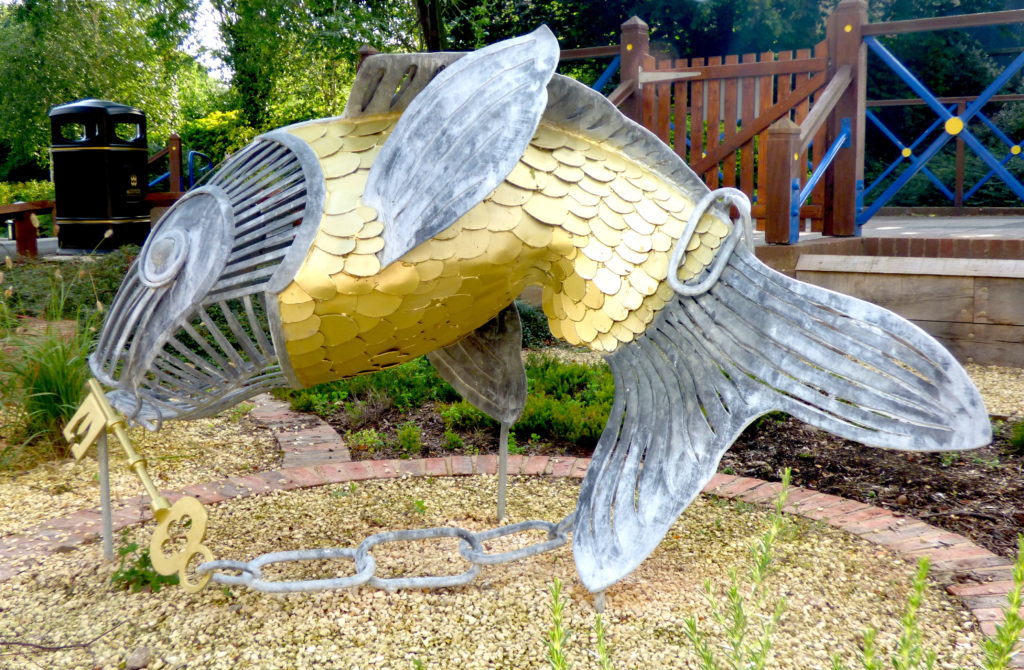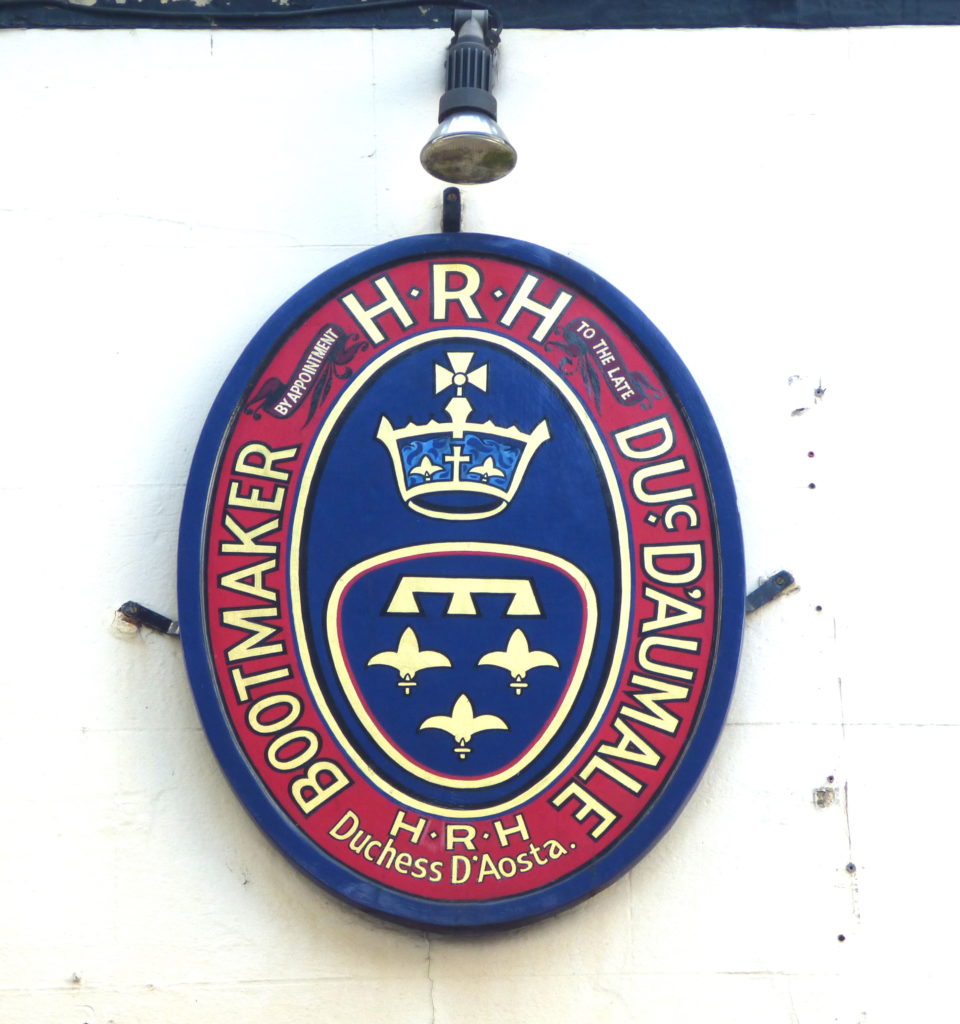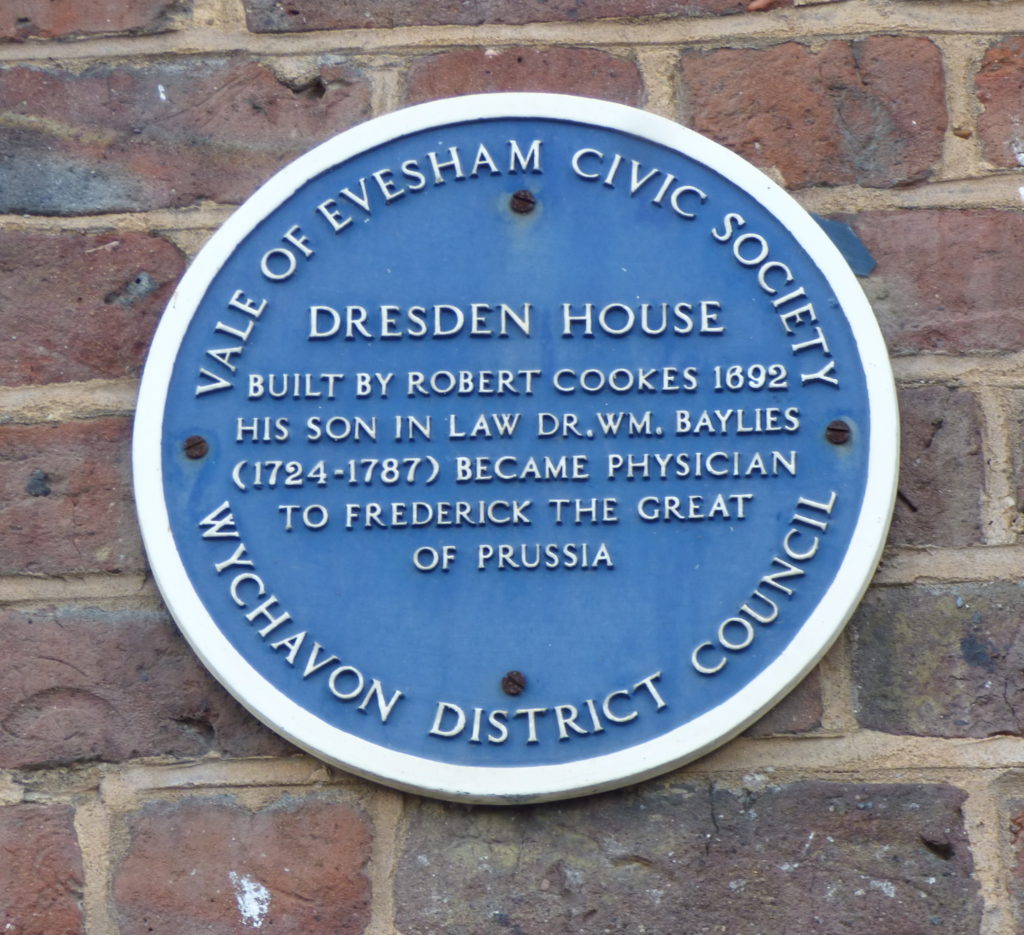The Evesham Custom
Today was not one of our navigational highlights. One of the locks had a low bridge over it, and I managed to knock the chimney off, and lose it in the lock. In my defense, I tried to remove it in advance, but it was wedged on tight, and both Paula and I thought it would fit if we just removed the rain cover from the top. Wrong. Oh, well, new chimneys aren’t that expensive.
The Avon was running quite strongly, and though we are going downstream, the current makes steering difficult in places, particularly on the approach to Evesham lock, which has a weir on one side and a hydro-electric power station on the other. The landing stage for the lock has been moved to the weir side, so the guide was out of date. In trying to avoid the weir I missed the lock landing, and found the boat being carried sideways towards the power station. I managed to avoid that by ramming the lock gates, which did not amuse the Avon Navigation Trust volunteer who was manning the lock. He cheered up after I apologized profusely, and said I had not done nearly as much damage to the lock gates as some people.
We hadn’t meant to come as far as Evesham today, but the Bidford moorings were hard to get to with the washing machine running. (Long story.) So, Evesham it is. The sun came out soon after we arrived, adding a pleasant coda to an otherwise cloudy day.
I did mention the whale cult in Evesham the last time we were here.

It turns out that it is not just whales. They have a thing about fish, too.

It’s the same old trick. Lock yourself up, throw away the key, travel a thousand miles, go to the fish market, and the key turns up in the belly of the first fish you buy. I think Lance Burton is still performing that one. However, this fish idol records the notable performance by Saint Egwin, a 7th century bishop and founder of Evesham Abbey. He wanted the pope to take his side in a tricky doctrinal dispute with the local citizens, so he locked himself in chains, threw the key in the river, traveled to Rome still locked up, and ‘found’ the key in a fish purchased from the local fish market. He presented this to the pope as a sign of divine blessing on his cause. The pope, who had never seen Lance Burton, let alone Penn and Teller, took his side.
Look, I know you are not supposed to give magic tricks away, but this one has been around for thirteen hundred years, so everyone should know it by now anyway. For the benefit of any popes reading, you lock yourself up, throw a different key in the river, keep the real key in your pocket, and later pretend to find the real key in a dead fish. Heck, Egwin probably took his chains off every night so he could get a good night’s sleep. Now, you may not think that the blessed Saint Egwin would stoop to sleight of hand to convince the pope on a point of dogma, but I think that’s darn sight more likely than a fish swimming from the Severn all the way to the Tiber with a bloody great key in its gullet.
Here’s a couple of notices on buildings.

The Duc d’Aumale died in 1879 and the Duchess d’Aosta died in 1986. The building is now a convenience store.

Frederick the Great died in 1786, in spite of having a physician from Evesham. The building is now a beauty parlor. Times change.
The Vale of Evesham has long been a center for market gardening (US: truck farming). Apples, plums, asparagus, berries, and onions do well in the rich alluvial soils of the Avon’s flood plain. However, these are labor intensive things to grow and harvest. Traditionally, the large landowners leased out many parcels of land to small farmers. However, crops such as asparagus and fruit trees can take several years to turn a profit, so Evesham developed its own specialized rental law to deal with this. While the freehold of the land belongs to the landlord, the value of any improvements to the land belongs to the tenant. If the lease is transferred to a new tenant they must pay the old tenant for any established trees or crops that are growing there. This is called the Custom of Evesham.
However, times change. These days the big landowners are reclaiming the land when leases expire, attempting to pay as little compensation for improvements as possible to the displaced tenants, and importing cheap labor from Eastern Europe to work the fields. I don’t think I heard a single person speaking English when I wandered around town, and the convenience stores are full of goods from the other end of the European Union. However, this is such an English place that in a few years I’m sure they will be drinking bitter, eating curry, and worshiping whales as if they were born here.